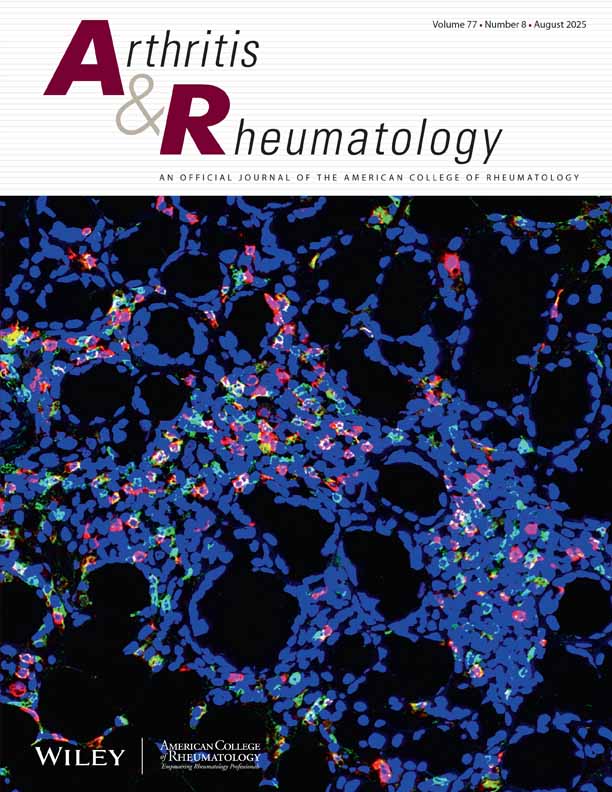Interferon-α–inducible proteins are novel autoantigens in murine lupus
Abstract
Objective
To investigate the spectrum of B cell autoimmunity in the recently described anti-CD1–autoreactive T cell receptor (TCR)–transgenic murine lupus-like (CD1 lupus-like) model.
Methods
Lethally irradiated BALB/c/nu/nu mice were injected intravenously with donor BALB/c bone marrow and spleen cells expressing TCRα and TCRβ transgenes that recognize CD1d. Sera from adoptive host animals that developed lupus (i.e., CD1 lupus mice) were collected at serial time points and analyzed by Western blotting and immunoprecipitation, using protein extracts prepared from NIH3T3 mouse fibroblasts and EL-4 lymphocytes, respectively. Sera obtained from older animals in several models of spontaneous lupus (NZB/NZW, MRL++, and MRL/lpr mice), unmanipulated BALB/c/nu/nu mice, and normal BALB/c mice were used as controls.
Results
Analyses demonstrated that the prominent targets of autoantibodies in the CD1 lupus-like model are interferon-α (IFNα)–inducible antigens. Biochemical and serologic characterizations identified one antigen as belonging to the interferon-inducible 202 (Ifi202) subfamily of proteins within the Ifi200 family, and a second antigen as a member of the 70-kd heat-shock protein family. Autoantibodies directed against these antigens were rapidly produced at an early stage of disease. Anti-p50 autoantibodies were present in sera from 7 (78%) of 9 CD1 lupus mice that developed severe kidney disease.
Conclusion
IFNα-inducible proteins represent a novel class of autoantigens in murine lupus, and the findings suggest additional roles for IFNα in this disease. Since Ifi202 autoantigens are encoded by the murine non–major histocompatibility complex lupus-susceptibility gene locus Ifi202, these data provide a link between recent advances in lupus genetics and the formation of autoantibodies.




